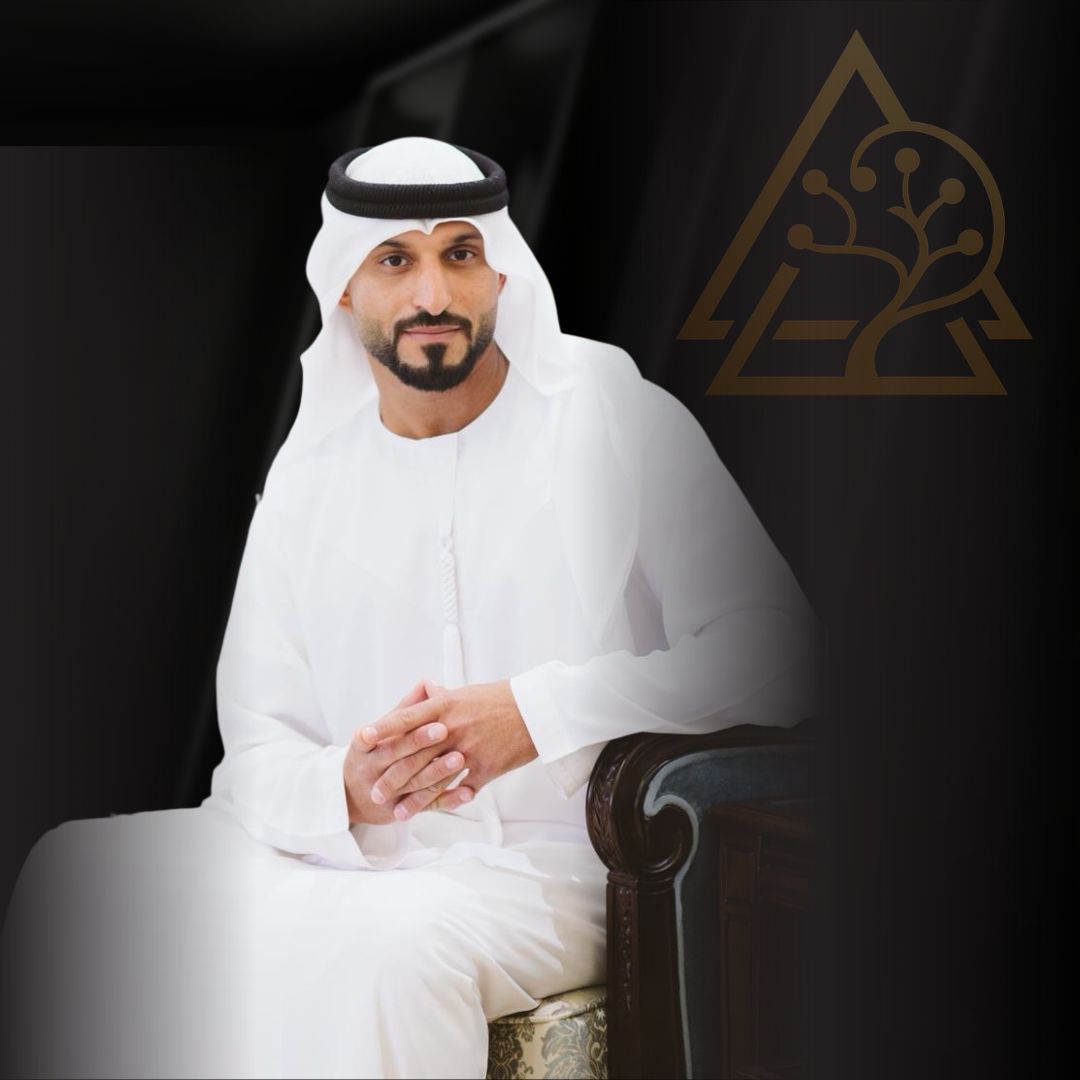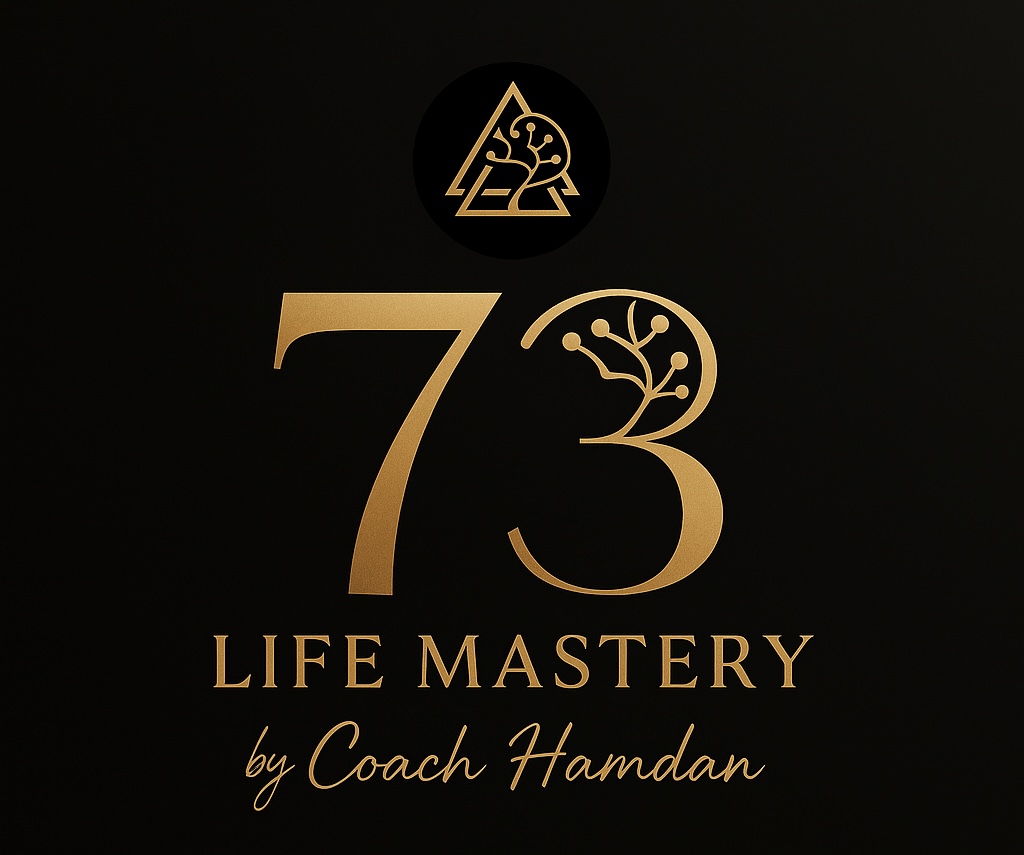Coach Hamdan
“When you learn to think with clarity, you need no teacher,
your very thoughts become the guide. In that instant, the enemy
dissolves, and the mind reveals itself as your greatest ally.
Shift the lens, and the world before you is transformed.”
Coach Hamdan
“When you learn to think with clarity, you need no teacher, your very thoughts become the guide. In that instant, the enemy dissolves, and the mind reveals itself as your greatest ally. Shift the lens, and the world before you is transformed.”

Testimonials

Skeptical. That is how I felt when I started. Belief. Is where I am now. That life is so much more than the box we grow up in. The transformation has been real to say the least. Coach Hamdan brings his flair of tough-love fused with empathy and compassion coming from an authentic and vulnerable place, creating a connection with the coach that I found absolutely vital in driving, and building on chage. My time with him has (and continues to be) life-changing at the bare minimum and expansive to keep believing. And true belief, that anything is possible. As long as you take ownership and control of your life.
- Javed

I had the privilege to be coached by the master himself , his way of life coaching has alternated my life in so many ways, this comes from some one who has tried traditional psychiatry therapy, multiple times, and there cannot be any comparison, as the coaching provides u not only with clarity to what ever u are going through, it provides you the tools , it simply removes the trauma the issue on the spot, it cannot be explained as its one of the best decisions i have made in my life.
- Mohamed Khaled

LIFE COACHING
With Hamdan’s guidance I was able to overcome the emotional burden that was haunting me. For the pas two years I was trying to overcome the incident through the traditional way, I was followed by a psychotherapist and under meds for depression. The future didn’t seem bright and the idea taking meds for years didn’t seems like the right choice. Hamdan guided me and we worked on the timeline to release emotions and on picturing the haunting incident to shift my feelings and internal representation about it. He sifted me to the other side quickly and easily. Today I’m in my most resourceful state as I’ve even been. Life is brighter, I’m reconnecting to people, eating the food and enjoying it’s taste. Knowing that there are a lot of people out there who goes through hard times makes me thankful to Hamdan for his wisdom, patience and dedication he shown throughout the coaching session.
- Marie-Alex S

LIFE COACHING
Hamdan is very intuitive and made me feel at peace and at ease throughout every session. His calm nature and his ability to easily find the truth behind the masks I had used my whole life was profound. He guided me through clarifying my challenges, releasing negative emotions and a life time of unwarranted limiting beliefs. This helped me unlock my deepest desires and gave me the confidence to follow my heart. He is an extraordinary human being and coach.
- Troy McTeer

ELITE COACHING
I have learned to know Hamdan as a caring and compassionate man, who cares for others wellbeing. His own life experience and education have created a firm foundation that anyone with a need to make some profound changes can benefit from. I strongly support Hammi and his efforts to help as many as possible.
- Mikael Lornstam - CEO

LIFE COACHING
It’s Hamdan’s way of calming a person and implicitly sending the powerful message that everything is fine. he then utters a few words that blow up my mind with their depth and wisdom.
- Mahmoud Al Sagheer
Testimonials...

Skeptical. That is how I felt when I started. Belief. Is where I am now. That life is so much more than the box we grow up in. The transformation has been real to say the least. Coach Hamdan brings his flair of tough-love fused with empathy and compassion coming from an authentic and vulnerable place, creating a connection with the coach that I found absolutely vital in driving, and building on chage. My time with him has (and continues to be) life-changing at the bare minimum and expansive to keep believing. And true belief, that anything is possible. As long as you take ownership and control of your life.
- Javed

I had the privilege to be coached by the master himself , his way of life coaching has alternated my life in so many ways, this comes from some one who has tried traditional psychiatry therapy, multiple times, and there cannot be any comparison, as the coaching provides u not only with clarity to what ever u are going through, it provides you the tools , it simply removes the trauma the issue on the spot, it cannot be explained as its one of the best decisions i have made in my life.
- Mohamed Khaled

LIFE COACHING
With Hamdan’s guidance I was able to overcome the emotional burden that was haunting me. For the pas two years I was trying to overcome the incident through the traditional way, I was followed by a psychotherapist and under meds for depression. The future didn’t seem bright and the idea taking meds for years didn’t seems like the right choice. Hamdan guided me and we worked on the timeline to release emotions and on picturing the haunting incident to shift my feelings and internal representation about it. He sifted me to the other side quickly and easily. Today I’m in my most resourceful state as I’ve even been. Life is brighter, I’m reconnecting to people, eating the food and enjoying it’s taste. Knowing that there are a lot of people out there who goes through hard times makes me thankful to Hamdan for his wisdom, patience and dedication he shown throughout the coaching session.
- Marie-Alex S

LIFE COACHING
Hamdan is very intuitive and made me feel at peace and at ease throughout every session. His calm nature and his ability to easily find the truth behind the masks I had used my whole life was profound. He guided me through clarifying my challenges, releasing negative emotions and a life time of unwarranted limiting beliefs. This helped me unlock my deepest desires and gave me the confidence to follow my heart. He is an extraordinary human being and coach.
- Troy McTeer

ELITE COACHING
I have learned to know Hamdan as a caring and compassionate man, who cares for others wellbeing. His own life experience and education have created a firm foundation that anyone with a need to make some profound changes can benefit from. I strongly support Hammi and his efforts to help as many as possible.
- Mikael Lornstam - CEO

LIFE COACHING
It’s Hamdan’s way of calming a person and implicitly sending the powerful message that everything is fine. he then utters a few words that blow up my mind with their depth and wisdom.
- Mahmoud Al Sagheer
About Me
I am Hamdan Alblooshi, a Life & Mindset Transformation Coach dedicated to helping ambitious professionals and individuals break free from emotional blocks, self-doubt, and painful past experiences, so they can step into a life of purpose, confidence, and freedom.
My path into coaching wasn’t accidental. It was born from my own journey of overcoming struggle, rediscovering inner strength, and realizing that the key to transformation starts with you. Along the way, I learned that the greatest enemy we face is not outside of us, but within us. the stories, fears, and beliefs we hold about ourselves.
Once you conquer your inner world, you step onto the path of true life mastery.
About Me
I am Hamdan Alblooshi, a Life & Mindset Transformation Coach dedicated to helping ambitious professionals and individuals break free from emotional blocks, self-doubt, and painful past experiences, so they can step into a life of purpose, confidence, and freedom.
My path into coaching wasn’t accidental. It was born from my own journey of overcoming struggle, rediscovering inner strength, and realizing that the key to transformation starts with you. Along the way, I learned that the greatest enemy we face is not outside of us, but within us. the stories, fears, and beliefs we hold about ourselves.
Once you conquer your inner world, you step onto the path of true life mastery.
About You
You want to reclaim your confidence. To feel whole again. To trust yourself, love again, and finally live without the old chains of guilt, shame, fear, or anger holding you back.
If this sounds like you, know this: you are in the right place.
This work is for people like you, the strong ones who’ve carried so much, who’ve achieved so much, and who are finally ready to put down the old burdens and rise into the life they truly deserve.
About You
You want to reclaim your confidence. To feel whole again. To trust yourself, love again, and finally live without the old chains of guilt, shame, fear, or anger holding you back.
If this sounds like you, know this: you are in the right place.
This work is for people like you, the strong ones who’ve carried so much, who’ve achieved so much, and who are finally ready to put down the old burdens and rise into the life they truly deserve.

Copyright © Coach Hamdan

Robert Simic Unlock your potential
with Robert Simic : Inspire,
Transform, Succeed!
Robert Simic
Coaching Institute

Robert Simic Unlock your potential
with Robert Simic : Inspire,
Transform, Succeed!